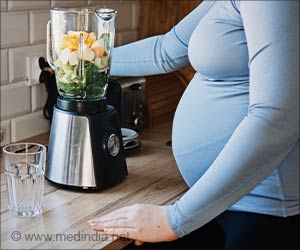Can working night shift affect fertility? Working at night can change your circadian rhythm, which regulates your periods and pregnancy hormones.
- Disruption in sleep patterns alters many physiological systems, including female reproductive system
- Thus, there are chances of menstrual irregularity that cause difficulty in getting pregnant
- Choosing the right shift schedule may be the best way to enable them to balance career and health
There is a known link between lack of quality sleep and difficulty conceiving, but how exactly this plays a role in night shift work impacting your ability to get pregnant is not very clear. Read on to know more.
Read More..
Sleepless Job Impacts Fertility
Experts feel that night shift work may affect the quantity and quality of sleep and the circadian rhythm, the 24-hour biological cycle that regulates sleep and wakefulness (1✔ ✔Trusted SourceWork Schedule – Reproductive Health
Go to source).
Disturbing these circadian processes and sleep patterns alter many physiological systems, including female reproductive health through menstrual irregularity, endometriosis, and prolonged time to conceive.
Till now, no study has investigated the potential relationship between night shift work and the requirement for reproductive assistance (fertility treatment) to conceive.
The new study investigated whether women who worked night shift were more likely than those who did not required fertility treatment to conceive a first birth.
The role of age is also considered in this study to explicitly address the circumstances that: night shift work is more commonly undertaken by younger women.
Even the access to fertility treatment increases with age, as women are increasingly in a position to bear associated costs (financial, time, relationship strain); the age-related decline in women's fertility changes the demographic and health profiles of women seeking treatment.
The perinatal registry that includes a woman's usual occupation before and/or during pregnancy, coded according to the Australian Standard Classification of Occupations First Edition was used.
To assess exposure to night shift work, a shift work job-exposure matrix (JEM) was applied. Job-exposure matrices provide a cross-classification of job codes/titles and the probability of occupational exposure.
For the present study, exposure to light at night is an indicator of night shift work. Exposure to light at night mainly contributes to circadian disruption and altered melatonin secretions, leading to several adverse health outcomes. Those without this were assumed to be day workers.
They found the association between potential night shift work and the use of fertility treatment to conceive the first birth was significantly modified by women's age.
Potential night shift work increased the likelihood of fertility treatment in young women up to 35 years by 27% to 40%, depending on the reference group, but no association was observed among women over 35 years when compared to day workers.
Night shift workers who received fertility treatment were 30% to 40% more likely to have an infertility diagnosis of endometriosis or menstrual irregularity, and 30% less likely to experience unexplained infertility, compared to other women requiring treatment to achieve a first birth (2✔ ✔Trusted Source
Night Shift Among Women: Is It Associated With Difficulty Conceiving a First Birth?
Go to source).
These frequent diagnoses of menstrual irregularity and endometriosis among night shift workers requiring fertility treatment are consistent with different hormone systems adapting to changes in circadian rhythm.
Link between Sleep and Fertility
Circadian activity is coordinated by the suprachiasmatic nucleus in the hypothalamus, which relays information from environmental stimuli to other parts of the brain and peripheral organs.The optimal functioning of this structure is required to produce the luteinizing hormone (LH) surge and ensuing ovulation and that melatonin interacts with gonadotropins, which are essential for pregnancy to happen.
Circadian misalignment and impaired sleep are also associated with neuroendocrine stress, oxidative stress, altered immune function, and low-grade system inflammation. Impaired immune function and inflammatory responses in night shift workers may contribute to increased susceptibility to endometriosis.
Individuals have been shown to vary in their ability to tolerate night shift work. Those with poor tolerance experience symptoms such as gastrointestinal disturbances, sleep disturbances, fatigue, and changes in mood (irritability, low affect) and behavior.
What can be Done to Increase Chance of Getting Pregnant?
To improve sleep quality and increase chances of getting pregnant, women should:- Have 7 to 8 hours of sleep every night. Too less or more can negatively affect fertility.
- Unplug before bed. Put away computers, phones, tablets, and other electronics at least an hour before you sleep.
- Try changing your work schedule. If you work night shifts, see if you can change your work schedule. If this isn’t possible, ask your employer to adjust the lighting in your workspace (3✔ ✔Trusted Source
Female fertility: Why lifestyle choices count
Go to source).
Try to have a balanced work and personal life for overall wellness.
References:
- Work Schedule – Reproductive Health - (https://www.cdc.gov/niosh/topics/repro/workschedule.html)
- Night Shift Among Women: Is It Associated With Difficulty Conceiving a First Birth? - (https://www.ncbi.nlm.nih.gov/pmc/articles/PMC7736040/)
- Female fertility: Why lifestyle choices count - (https://www.mayoclinic.org/healthy-lifestyle/getting-pregnant/in-depth/female-fertility/art-20045887)










